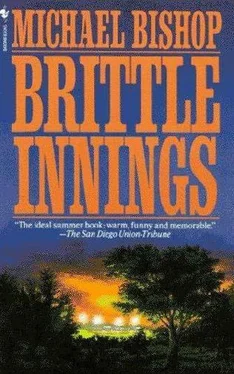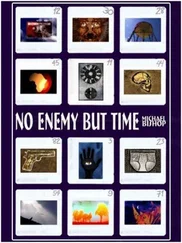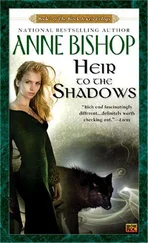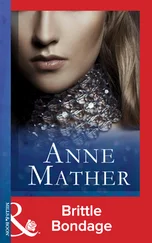“Mebbe so. But it’s a trick.” Daddy gave me a goatish wink. “Well, you bastid, your mama’s secret’s safe with me.”
He slammed out the door without even scrounging up a change of clothes. Late August, early September, Hitler messing up folks’ lives in Europe. You heard about it on the radio. Like a fight between your parents scrawled in letters the size of buildings.
“Dick! Come back!” Mama shouted at Daddy, who’d just said he wasn’t. Finally, she realized her boy lay hurt.
My voice box had closed. I sat up amongst black-and-white portraits, still lifes, scenes of war. Except for the mark on my throat, I must’ve looked more or less okay. When I started breathing again, I was okay. But I didn’t talk again for two years. And when I did, I st-st-stammered.
On the troop train, I pulled on my clothes and made my way between curtained berths to the coupling where I liked to ride. The shanties of poor white and colored sharecroppers clicked by like old photos, or maybe negatives, of themselves. They looked as empty as I felt. My voice box’d closed again. When our locomotive whistled going into the curve on a kudzu-smothered ridge, I tried to mimic it. I tried to scream like that monster two-six-two engine.
Nothing came out.
That night between cars lasted forever. I kept expecting Pumphrey to come through. The sun did come up, finally, and we rattled into Georgia over the Chattahoochee River and a swaying trestle bridge. The tracks looked like poured mercury. Early June, but already godawful hot. If we stopped in some podunk town or weedy switching yard, gnats and noseeums attacked us in eggbeater tornadoes.
Oklahoma got hot-its dust storms could blast you raw-but Georgia ’s heat came like the rolling smoke of a junkyard tire fire. Once, its land had been wooded, but loggers and peanut fanners had cut the trees and turned it into a clayey plain. We chugged over it into a sprawl of roadhouses, motor inns, and billboards: Highbridge’s outskirts. (Gas rationing had killed most of the inns and roadhouses.) Camp Penticuff lay six or seven miles southeast of town. The Panhandle-Seminole Railway line we’d come in on cut a slant through the post. Civilians got off in town, soldiers kept riding.
Climbing down from the train, I finally saw some of the other nonmilitary types who’d been aboard. They stood in knots on the platform fanning themselves and greeting friends. Don’t ask me where they’d hid themselves. I’d seen mostly uniforms aboard-one damned uniform too many. With all the signs around asking you to limit your time in the dining car and to forgive any travel delays, you realized the railroad preferred military cargo to nonessential civs like me.
At Highbridge station, I began to get scared. I’d figured Mister JayMac would meet me, but Mister JayMac was nowhere to be found. Now what? If somebody could’ve proved to me that Pumphrey’d got off in Alabama, I’d’ve ridden on into camp with the dogfaces.
Instead, I wandered into the depot. My duffel saved me. It had a bat-a red bat-poking up through it.
“ Yoobo? ” said a high-pitched voice in the gloom. I looked around, bumpkinlike. Louder, the voice said, “ Yoobo? ” I turned and looked down. There, staring up at me blank-faced out of chocolately eyes, slouched a twelve- or thirteen-year-old urchin, barefoot. He wore a too-big man’s shirt and shiny cotton trousers. Little Black Sambo. On top of my manners, I might’ve called him a colored, or a pickaninny. I only had a few years on him, but at our ages that was a generation. What did he want? A handout? “You Danny Bo?” he shouted, like I was deaf as a jackhammer jockey.
Holy cow. Someone in Highbridge-a barefoot nigger kid out of Uncle Tom’s Cabin -knew my name. Sort of.
“ Yookla .” He stuck out his hand-to shake, I figured. So I reached to give his hand a pump. His look curled from blankness to suspicion. He didn’t pump back. His hand dropped like a slab of raw liver, detouring to my duffel bag, his aim all along. He was my reception committee, sent out by Mister JayMac to fetch me to him. Should I feel honored or snubbed?
“ Cmn ,” he mumbled, then dragged my duffel through the waiting room to the street. Out front, at the curb, hulked a rusty brown-and-white bus, a wingless Flying Fortress. The kid jumped up its steps and disappeared inside.
The bus had curlicue writing on its side: HIGHBRIDGE HELLBENDERS. Under that, in smaller letters, TERRORS OF THE CVL. On the fender above the front wheel ran a line of script giving the bus’s nickname: The Brown Bomber,
“Well, Mr Boles, you riding or admirin?” said a deep voice from the driver’s seat. It belonged to a well-built colored in his mid to late twenties. He had one big hand on the steering wheel and one on the door lever. To show him I couldn’t talk, I touched my throat and shook my head. I didn’t want him, nigger or no, thinking I was stuck up.
“So thoat?” he said. “Damn. A so thoat in summer’s bout the wusst.”
Uh-uh. I waved off his guess, tapping the end of my tongue with my finger. Passersby gave me looks.
“Git on up here,” the driver said. “Keep that up, somebody haw you off to the rubber room.”
I climbed aboard. The kid with my duffel had gone all the way to the back. Above a far seat, the top of his head poked up like a nappy black cactus.
“Cain’t talk, eh?” the driver said. I shook my head. “Sit down and lissen, then.”
I slid into a seat catawampus to the driver’s, sweating so bad I put a Rorschach blot on it. But for him and my half-pint porter, I had the Brown Bomber to myself.
“At boy back there’s Euclid,” the driver said. “ Euclid. Like the Greek geometry man.”
Yookla , I thought. Yookla equaled Euclid.
“I’m Darius Satterfield.” He drew out the long i in the middle of Darius. “ Euclid ’s my brother. Fo now, Danl, that’s bout aw you need to know.”
Danl, not Mr Boles. A true-born white boy might’ve taken offense, but it never crossed my mind Darius’d overstepped his place. Besides, nobody-black, white, or polka dot-had ever called me Mr Boles.
Darius drove us away from the railway depot. Factories and cars floated by. Giant water oaks and live oaks lined some of the streets. Toward Highbridge’s eastern edge, glimpses of pancake-flat land flickered between mill houses and shanties. A few soldiers strolled by, but mostly I saw white civilians-until, at least, we reached a market area where colored women carried baskets of tomatoes, okra, beans, and squash on their heads. Close by, dusty lots had filled up with covered traps, mule-drawn wagons, even a couple of ox carts.
I felt like a visitor to Tanganyika. Darius didn’t act as a tour guide, though, and Euclid ’s head’d slumped out of sight. Anyway, everything about Highbridge-part city, part country crossroads-amazed me: the sights, the smells, the people. I was a foreigner.
Even in ’43, Highbridge had nearly 10,000 people, with another five or six thousand soldiers, WACs, and support personnel out to Camp Penticuff. The locals, with the war on, made a lot of their money off the doughboys. On Penticuff Strip, which angled southeast from the old business district, there were pawn shops, beer joints, dancehalls, tattoo parlors, even some two-buck-a-tussel cathouses. For jobs, the town had some holdover industries from prewar days: meat-packing plants, textile mills, foundries. The ironworks now made torpedoes, though, and a crate-making factory had started turning out duckboards for trenches and foxholes. Peanuts were the biggest local crop, but cattle, pecans, and cotton weighed in as old reliables too.
On a single ride from the railway depot, you couldn’t see everything in Highbridge. If you started regarding it as a sleepy burg, maybe even malaria-ridden, you began to feel superior to it-even if you hailed from a no-account town in Oklahoma. Tenkiller, you figured, at least qualified as a frontier town, but Highbridge, even if more like an African colonial outpost, gave itself big-city airs, airs like trying to support a professional ball club.
Читать дальше












